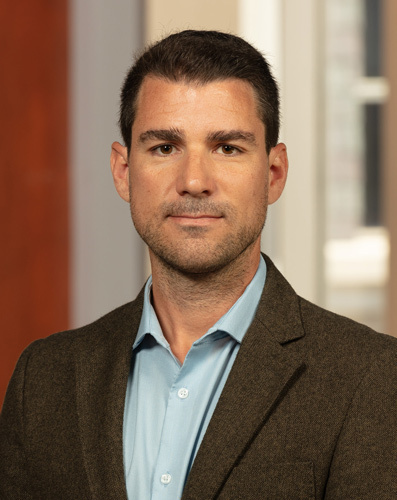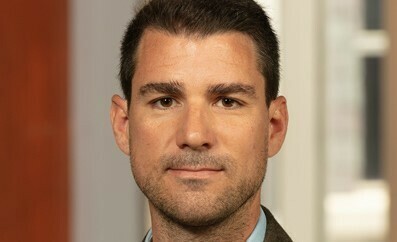Patient capital is in short supply
Investors demand returns — and many want them to materialize overnight. But not every investment opportunity has that kind of potential. Some take years to pay off, but yield big results when they do.
Mutual fund managers often choose not to add stocks like this to their portfolios, even when they know they exist. This is because fund managers are incentivized to plan for the short term by the structure of their compensation packages and the day-to-day obligations of managing a mutual fund.

But research from the University of Notre Dame’s Rafael Zambrana argues that mutual fund fee structures can be set up to incentivize long-term thinking, and this yields better results for investors with the patience to commit their capital.
“In the 1960s, investors held stocks for an average of eight years. Today, the average is just six months,” says Zambrana, an assistant professor of finance at the Mendoza College of Business.
“And that number includes securities held by institutional investors like mutual funds. When institutional investors like hedge funds participate in high-frequency trading, they promote a short-term investment horizon. And that seems to be what investors are demanding in the asset management industry. Patient capital is in short supply.”
Fund managers’ compensation is often based on their performance relative to a benchmark and usually measured over a short period of time. This can be one year or even less, and fund managers are incentivized to think on that timeline. Concerns about the evaluation of their own performance can impact their decisions. They may choose not to purchase some stocks because they won’t perform well in the short term.
Fund managers also need to consider investor behavior. The underlying investors in mutual funds can withdraw their money at any time, and fund managers need to provide it to them when they do. That means managers might need to sell stocks to pay investors, and this makes profitable illiquid stocks less attractive. A more liquid stock can easily be bought and sold with minimal effect to its price. If a fund manager needs to sell them quickly, it won’t drive the stock’s price down too much.
In “Capital Commitment and Performance: The Role of Mutual Fund Charges,” forthcoming in the Journal of Financial and Quantitative Analysis, Zambrana proposes a model that analyzes the performance of mutual funds with different sales fee structures. The research found that fee structures that incentivizes the underlying investors to be more patient with their investments allows fund managers to better take advantage of long-term opportunities, and especially stocks with lower levels of liquidity. This ultimately makes investors more money.
“The main challenge for portfolio managers is a mismatch with the investment horizon of value investing,” says Zambrana.
“Even if they believe a stock is undervalued and will appreciate, they may not want to add it to their portfolio because of the short-term obligations of managing a fund. We argue that the willingness to invest for the long term should be rewarded. We call that committed capital, and it provides insurance to portfolio managers, so you should reward it.”
When retail investors buy shares in a mutual fund, they are putting their trust in a fund manager who manages the fund’s assets with the goal of beating the market. To obtain this service, the underlying investors pay a fee. These fees are typically charged annually, but by front-loading the fees, mutual funds can attract more long-term investors.
When a higher fee is charged at the time of investment, and a discount offered on annual fees, there is less incentive for people to withdraw their money, because they have already paid a larger amount of their fees. This helps prevent outflows of money caused by underlying investors cashing in. It also allows the fund managers to lock more capital into good long-term investments, such as companies that are R&D intensive or invest in tangible assets like real estate. Shares in these companies are sometimes likely to appreciate over the long term, but are difficult to sell quickly.
In Zambrana’s model, funds with sizable front-loaded fees outperformed funds with higher annual fees.
“Patient capital is the source of outperformance. Mutual funds that have more of it can take on more risk. It allows portfolio managers to invest in stocks that are less liquid,” says Zambrana.
“It is not really a concern if they will have a harder time selling, because they won't need to sell in the short term. That leads to better returns. Fund managers can invest with a longer duration, and wait until the investment capitalizes. The underlying mechanism is that patient capital allows portfolio managers to take advantage of their skills to beat the market.”
Rafael Zambrana is an assistant professor of finance at the University of Notre Dame Mendoza College of Business. His research deals primarily with the investment behavior of institutional investors and the impact of their trades on stock markets.
Latest Faculty & Staff
- Notre Dame’s Fightin’ Irish Battalion receives Department of Defense award as nation’s top Army ROTC programThe United States Department of Defense honored the University of Notre Dame’s Army ROTC Fightin’ Irish Battalion as the nation’s top Army collegiate program for the 2023-24 academic year. This will be the first time the unit has received the department’s Educational Institution Partnership Excellence Award, which recognizes the program’s achievements in recruiting, educating, training and commissioning leaders of character to be the next generation of military officers.
- In memoriam: Karl Ameriks, the McMahon-Hank Professor of Philosophy EmeritusKarl Ameriks, the McMahon-Hank Professor of Philosophy Emeritus at the University of Notre Dame, died on April 28 from pancreatic cancer. He was 77. Born in post-World War II Germany, Ameriks’ family emigrated to the United States when he was a child, and he grew up in Detroit, Michigan. He received his bachelor’s and doctoral degrees from Yale University. He came to the Department of Philosophy at Notre Dame in 1973 during a formative time for the department, which had transitioned from a predominantly Thomist focus to the more analytical American philosophy in the 1960s.
- Notre Dame psychologist explores how children best learn math — and yes, timed practice helpsUniversity of Notre Dame professor of psychology Nicole McNeil recently co-authored a report that examines the best way for children to learn arithmetic — whether that’s by memorizing number values and multiplication tables, or by studying math at a deeper, conceptual level. The report, “What the Science of Learning Teaches Us About Arithmetic Fluency,” was published in the journal Psychological Science in the Public Interest and shows that children learn most effectively when instruction follows an evidence‑based cycle: grounding facts in conceptual understanding, using brief timed practice to make those facts automatic, and then returning to discussion and reflection to deepen that knowledge.
- ’Tis the season for ticks and mosquitoes. A medical entomologist talks about these pests and how to avoid them.Notre Dame expert Lee Haines explains the risks mosquitoes and ticks pose to the Midwest and discusses how the public can best protect themselves and family members (including pets) from these bloodthirsty pests.
- ND Expert on tariffs and trade policy: ‘How should the US be engaged with the rest of the world?’To make sense of the new administration's recent tariff announcements and policy changes, Robert Johnson, the Brian and Jeannelle Brady Associate Professor of Economics at Notre Dame, explains how tariffs affect global economies and what this means for U.S. engagement in global trade.
- In memoriam: W. David Solomon, founding director of the Center for Ethics and CultureW. David Solomon, associate professor of philosophy emeritus and founding director of the de Nicola Center for Ethics and Culture at the University of Notre Dame, died on February 26, 2025. He was 81.













